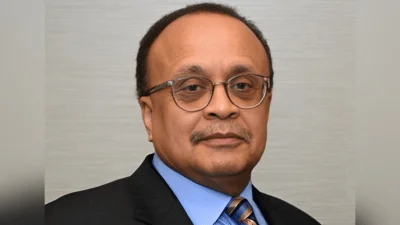U.S. Pediatric medical clinics are going to see problems as a result of the COVID-19 pandemic, says Dr. Nidhi Kukreja, a pediatrician practicing on the southwest side of Chicago.
Vida Pediatrics, where Dr. Kukreja practices, did not receive a loan through the Small Business Association (SBA) in the first round of federal funding. Vida's loan wasn’t approved until earlier this month.
The practice serves mostly patients with Medicaid, in partnership with Ann & Robert H. Lurie Children’s Hospital, within a network of providers.
That helps to keep the doors open.
Although COVID-19 and its related financial issues add to the stress on these medical facilities, the coronavirus is not the only problem for these clinics.
Dr. Kukreja suggests that a transition to managed care organizations running operations has created more difficulties. Payments have become irregular, claim denial erratic, and patients have lost coverage for months at a time and encountered delays in coverage reinstatement.
There have also been issues with newborns receiving coverage.
Yet another issue adding to the financial issues for area pediatric clinics is reimbursement for Medicaid patients’ healthcare. Medicaid reimbursement levels haven’t changed in 15 years, although Medicare reimbursement levels have doubed the Medicaid program levels, wrote Dr. Kukreja in an article on KevinMD.com
The financial issues that existed before COVID-19 have pushed pediatricians’ offices to limit the number of Medicaid patients they serve, effectively limiting the ability of growing populations of patients to get the medical care they need. Some practices have been forced to close their doors due to staff losses, inability to recruit new providers and due to the stress of being overworked.
She cited the case of Dr. John Kowalski, who started a practice in 1988, keeping his doors open to Medicaid patients throughout nearly 30 years of private practice. He estimates that he served more than 10,000 patients, but it was the last five years that were the hardest.
And that’s because managed care organizations’ insurance decisions and recoupments forced him to take out loans to keep up with payroll, then eventually pushed him into retirement. With 40 percent of America’s kids on Medicaid and pressure on pediatric medical clinics, there are serious issues to consider here.
“The federal government, despite being urged to do so by the American Academy of Pediatrics, the American Academy of Family Physicians, and the American College of Obstetricians and Gynecologists, has not, as of yet, provided Medicaid practices with COVID-19 relief funding like they have for Medicare practices and hospitals,” said Dr. Kukreja. “Primary care providers who do not serve an aging population are once again being left in the dust, and what’s worse, their patients will suffer the consequences.”






 Alerts Sign-up
Alerts Sign-up